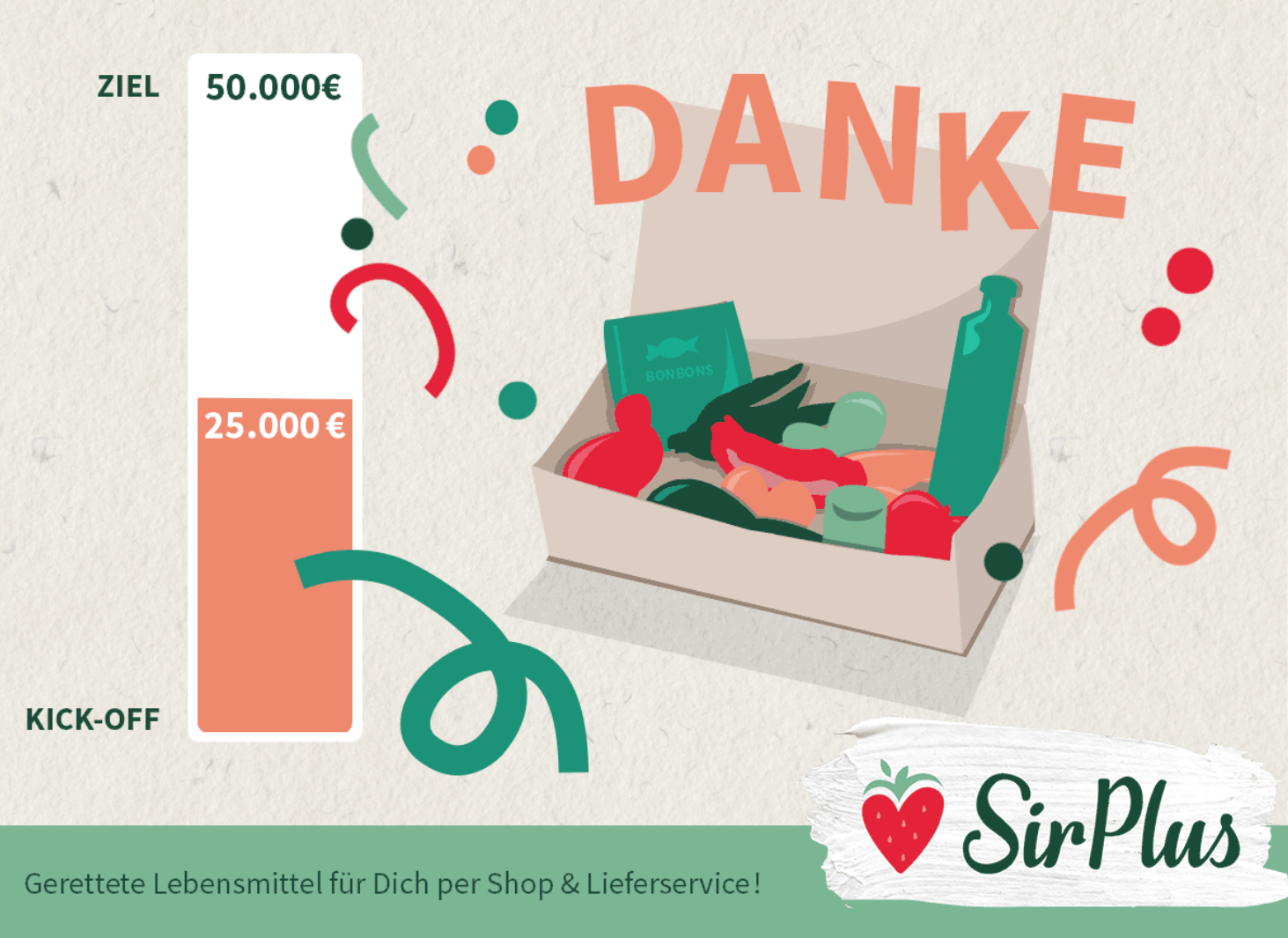In 2009, Raphael Fellmer began "dumpster diving," also known as "container diving." He rescued food from supermarket dumpsters to save it from being wasted.
After a 15-month journey from the Netherlands to Mexico, which he undertook without money, hitchhiking by car and boat, he began a money strike to raise awareness of the consequences of our throwaway society. More than 800 million people are starving, while a third of the world's food production is wasted. This food could feed all those suffering from hunger four times over. Through his own example, Raphael wanted to demonstrate how important it is for each individual to take responsibility and combat climate change and, in particular, food waste.
Raphael Fellmer – with rescued food from a supermarket in one night
The beginning of the food rescue movement
In 2012, Raphael Fellmer convinced the managing director of "Bio Company," Berlin's largest organic supermarket chain, of his concept of donating surplus food instead of throwing it away. This initial collaboration sparked the food rescue movement. Volunteers were able to combine something meaningful with something useful ! The concept is simple: At each participating business, surplus but still edible food is collected at an agreed-upon time and redistributed. Participating businesses include retailers, bakeries, restaurants, and similar establishments.

Raphael Fellmer – rescuing food at Bio Company, the first partner company
In 2013, Raphael Wintrich, a passionate programmer, created the food rescue platform.
Together with Raphael Fellmer, he precisely adapted the software to the needs of the community – Lebensmittelretten.de was born and gave wings to the movement, which spread rapidly throughout Germany, Austria and Switzerland.
In 2014, Lebensmittelretten.de merged with foodsharing.de , a non-profit organization that originally enabled individuals to share surplus food.
4 years of foodsharing
Thanks to the significant media interest in foodsharing, and especially in Raphael Fellmer's money strike and his commitment to combating food waste, the idea quickly gained traction. Raphael not only raised awareness of the global waste of approximately 1.3 billion tons of food, but also provided a practical solution for everyone in German-speaking countries with his food rescue concept. Today, foodsharing has more than 170,000 users and 23,000 food rescuers in Germany, Austria, and Switzerland. These volunteers, who regularly collect unsold food from 3,000 businesses, share it with friends, neighbors, people in need, and non-profit organizations.
Thanks to this unique success story, more than 470,000 pickups have been organized in the last four years, equivalent to 6.7 million kg of rescued food! This makes foodsharing one of the fastest growing movements of its kind, with more than one million hours of volunteer work already completed.

food sharing festival 2016 Berlin
After five and a half years, Raphael Fellmer ended his money strike, convinced that financial investment would allow him to have an even greater impact and save even more food from being wasted. Together with Martin Schott, who had been involved in building the food rescue platform since the movement's inception, he attempted once again, on a volunteer basis, to internationalize the foodsharing software with the yunity project. However, after eight months, they left the project to pursue a professional approach to reducing food waste. This time, they wanted to leave nothing to chance and also pay fair wages so that those who are professionally and passionately combating global food waste can fully concentrate on their work.
Welcome from our 3 co-founders
In the summer of 2016, Raphael and Martin joined forces with Alexander Piutti, a passionate serial entrepreneur and experienced company founder with a wealth of experience in digitalization and startups. Together, the three founded the startup Sharecy – an impact business that aims to make the world a better place by connecting all stakeholders in the supply chain, from farmers to end consumers, to sustainably reduce food waste.
Sharecy aims to better connect small and large NGOs worldwide that are involved in food rescue – e.g. food banks and foodsharing – with each other and with businesses using the latest technology, thereby creating synergies.

Sharecy Co-Founder Team: Alexander Piutti, Raphael Fellmer, Martin Schott
In order to give more appreciation to all the food that has so far fallen out of the value chain at central warehouses, farmers, production companies, etc., and ultimately to bring it back into the cycle, Sharecy will launch a digital marketplace for surplus food to make the rescue and redistribution of food a part of a modern circular economy.
In this context, we connect supply and demand using state-of-the-art technology and bring all stakeholders together under one roof: companies in the food and logistics sectors, food retailers and producers, as well as restaurateurs and consumers. The goal is to exert a strong and sustainable influence to combat and minimize food waste on a global scale. The proceeds from Sharecy's commercial model fund the free support of non-profit organizations and initiatives working to combat food waste.



